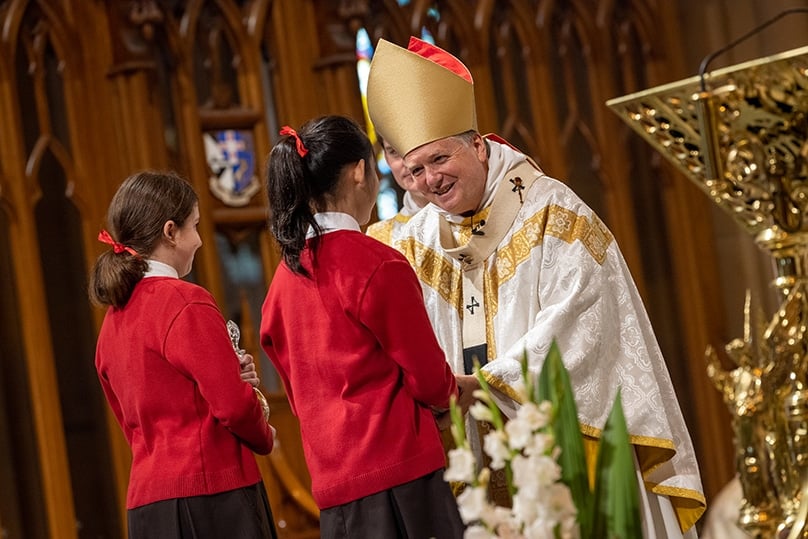
I dove back into the Catholics in Australia survey to see if there were other ways Catholic schooling might relate to how you believe, behave and belong to the Church.
Here’s a roundup to round off my last two columns on the topic.
Those who went to all-Catholic schools are less likely to go to the traditional Latin Mass—just 10 per cent of them, compared to 19 per cent of those with no Catholic schooling at all.
Schooling doesn’t seem to affect who you marry. Most of my survey participants are married to another Catholic.
But if you didn’t go to a Catholic school, your spouse is much more likely to go to Sunday Mass—66 per cent, versus 55 per cent of all-Catholic school graduates’ spouses.
Only 23 per cent of those with all-Catholic schooling go to confession monthly, compared to 37 per cent of those with no Catholic schooling.
Those with no Catholic schooling are also busy at parish level. A remarkable 44 per cent of them do at least one job in their local parish, compared to just 37 per cent of those with all-Catholic schooling.
This makes sense, because those who went to all-Catholic schools are also less likely to see the church as the most important part of their life—just 34 per cent, compared to 39 per cent of those who had no Catholic schooling.
In terms of what you think being a Catholic is—whether you think it’s mostly a matter of intentionally really believing something, or whether it’s a mix of tribal loyalties and the way you were brought up—the answers are different again.
Those with all-Catholic schooling are more likely to see it as a combination of factors. Only 46 per cent said that it was primarily a matter of really believing.
Those who had no Catholic schooling were less ambivalent—62 per cent of them said it was a matter of belief, first and foremost.
Just 33 per cent of those with all-Catholic schooling think it’s very important that their children marry other Catholics. But 41 per cent of those with no Catholic schooling think it’s very important.
They say you are the average of your five closest friends, and our all-Catholic school attenders had lots of Catholic friends.
Just 5 per cent said they had no Catholic friends, but 11 per cent of our non-Catholic school group had no Catholic friends at all.
All this might help us to understand why those who went to non-Catholic schools seem to have stronger Catholic belief and belonging.
It’s what University of Notre Dame academic Stephen Bullivant has written about in terms of getting your “Catholic weird on,” to help you survive a hostile culture.
High school is a tough environment for any kid. For a Catholic kid who’s serious about their faith, it can be ruthless.
If you go every day into a hostile, non-Catholic environment, you’d better take your faith seriously if you want to keep it.
Another explanation is that there’s a lot of former home-schooled kids in the no-Catholic-schooling group.
This group also had a much lower rate of Catholic friends, which doesn’t sound like home schoolers to me.
Today, most states in Australia have Catholic schools with nominal Catholic enrolments of under 50 per cent of all students.
We already know that most nominal Catholics don’t go to Sunday Mass, and it’s the same at the schools.
If you’re a nominal Catholic kid at a Catholic school with a bunch of other kids who never go to Mass or Confession, this is unlikely to help you to form a habit of regular Mass attendance and confession.
If around half the other kids at school aren’t even Catholic to begin with, it’s easy to get the idea that Catholicism isn’t all that important.
Yet Catholicism has something of huge value to offer everyone. It’s much more than being nice to people, or sorting your recyclables, or having cupcake sales.
We are redeemed children of God who were created to be drawn gradually more and more into the life of the Trinity itself. We are immortals, destined for eternity.
You can reject God if you like. You reject him by not doing what he asks of you (and that’s his definition of “rejection,” not mine).
We need to teach Catholic children the truth about their lives and their choices, whether at school or at home or anywhere else.
After all, every choice we make in this life matters, and shape us for eternal happiness—or unhappiness.
